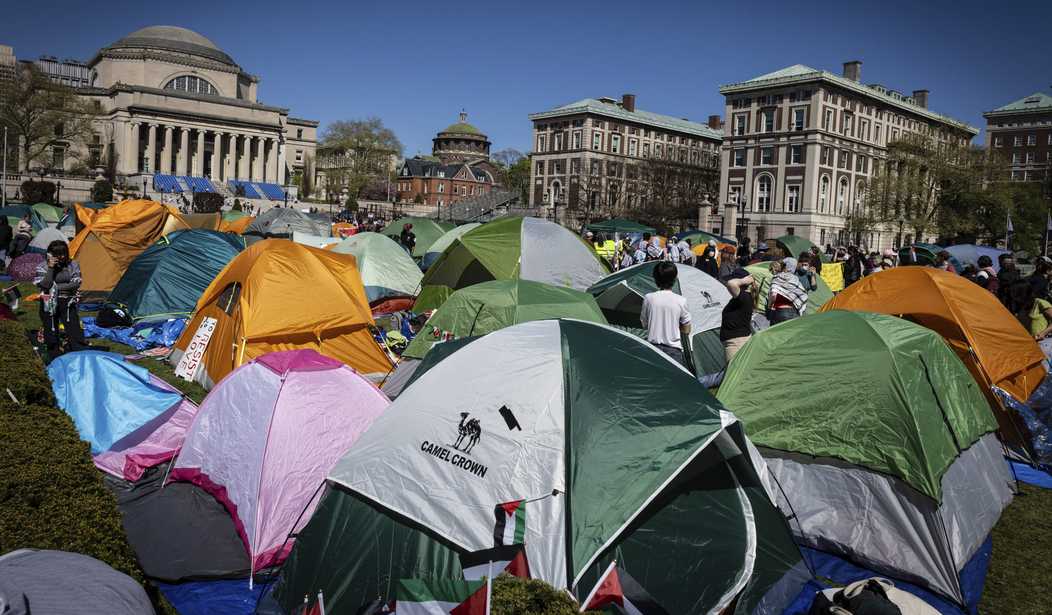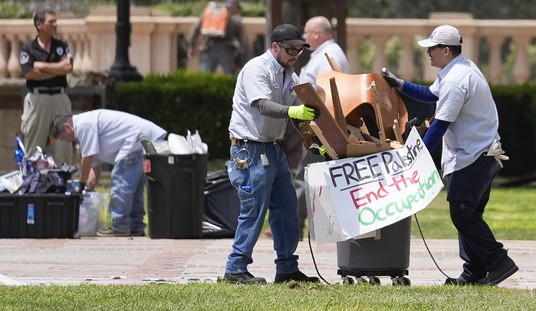The Republican House of Representatives is tasking no fewer than six committees to investigate antisemitism on college campuses, with federal research grants and other funding at stake.
The administrators who are under fire from all sides for the protests that have roiled college campuses in recent weeks have brought this down on themselves. They tolerated antisemitic behavior for years, passing it off as a free speech issue. Meanwhile, Jewish students were intimidated and threatened. The schools did nothing, even after Jewish students went to them asking for help.
“We will not allow antisemitism to thrive on campus, and we will hold these universities accountable for their failure to protect Jewish students on campus,” said House Speaker Mike Johnson (R-La.) at a news conference.
Johnson visited Columbia University this week and echoed the complaints of many Jewish students there, saying “the anti-Jewish hatred was appalling.”
Since this is an election year, the GOP's sights are set on uniting their own fractured party and dividing the Democrats by bringing the issue of campus antisemitism into the political debate. The plan is to saturate the airwaves with pictures of Palestinians supporting Hamas terrorists and the Democrats defending their "right" to spout hate speech.
Democrats will try to hide behind the "free speech" issue, but most voters will see through that and wonder why Democrats aren't standing against hate speech.
Senate Majority Leader Chuck Schumer, a New York Democrat, said in a floor speech Tuesday that it was “unacceptable when Jewish students are targeted for being Jewish, when protests exhibit verbal abuse, systemic intimidation, or glorification of the murderous and hateful Hamas or the violence of October 7th.”
Rep. Pete Aguilar, the No. 3 House Democrat, at a news conference Tuesday said that it was important for colleges “to ensure that everybody has an ability to protest and to make their voice heard but they have a responsibility to honor the safety of individuals.”
“For many of Jewish descent, they do not feel safe, and that is a real issue,” he said. Aguilar added that he wanted school administrators to have the opportunity to act before Congress would use its authority to deal with the situation. The problem with allowing administrators to deal with antisemitism is that they've had their shot and failed.
This is the Democrats' dilemma. They don't want to be forced to acknowledge support for allowing pro-Palestinian protesters to spout their hate on campus. Even if they qualify that position by saying that, of course, all Jews should be safe, voters won't hear that half of the equation.
Without Democratic support in the divided Congress, it is not clear what legislative punishments House Republicans could actually implement. Any bills from the House would be unlikely to advance in the Democratic-controlled Senate.
But so far, the House hearings with university presidents have produced viral moments and given Republicans high-profile opportunities to denounce campuses as hotbeds of antisemitism. In December, the presidents of Ivy League universities struggled to answer pointed questions about whether “calling for the genocide of Jews” would violate each university’s code of conduct.
Rep. Elise Stefanik (R-N.Y.) said the hearing featuring college presidents was the most watched congressional hearing in history. Whether that's true or not is beside the point. The sight of the presidents of some of America's most prestigious colleges struggling with the question of whether talk of genocide is hate speech served its purpose. It's not just a question of antisemitism. It also highlights the moral sewers that colleges have become.
“Enough is enough,” she said. “It is time to restore law and order, academic integrity, and moral decency to America’s higher education institutions.”
Republicans hope that most voters agree with that statement.










Join the conversation as a VIP Member